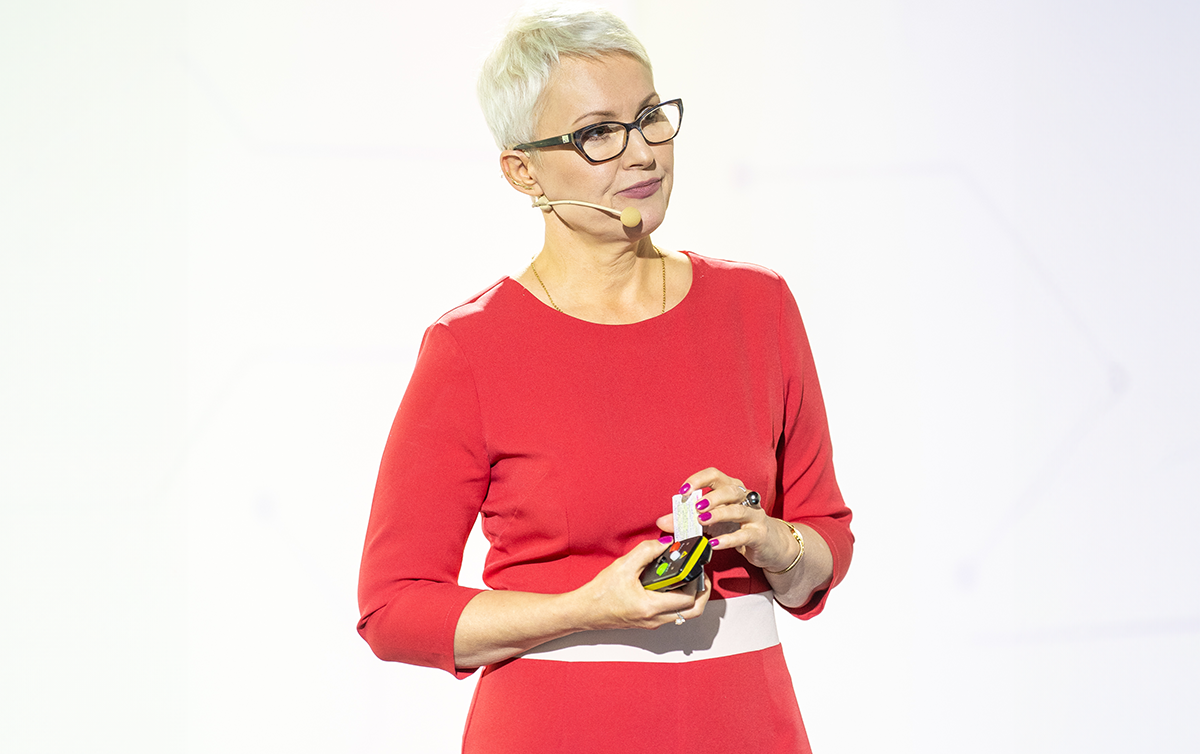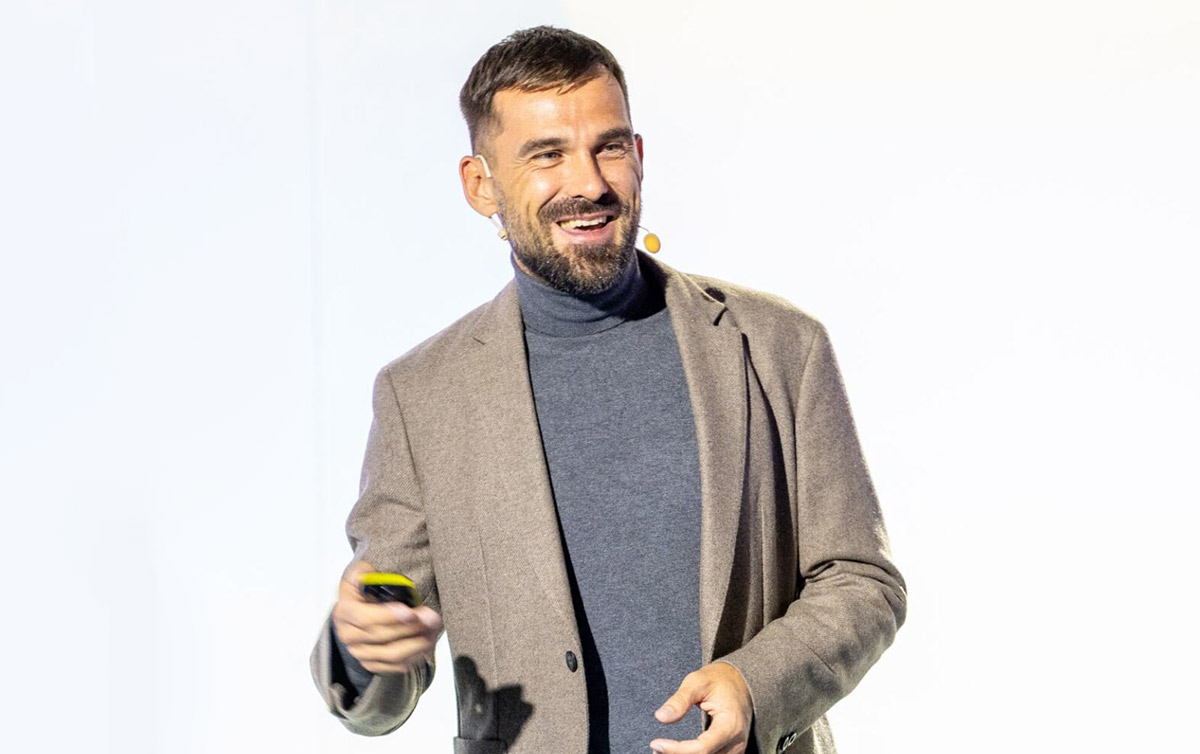“A good leader must be competent in the field of human management, because this is, in the post-covid era, a priority area in companies. These competencies include psychological knowledge about human beings and how they function in the work environment, as well as the five human spheres, which include the mind, emotionality, spirituality, the body, and relationship capital,” says Joanna Malinowska-Parzydło, pioneer of the topic of personal brand in Poland, MBA lecturer and long-time director of communication and HR at media corporations. “Whereas the key to the leader’s competencies is self-awareness, because thanks to it you can build a good culture and the right atmosphere in the workplace,” she adds.
What are the characteristics of a good leader? What values should they represent to effectively build their reputation capital?
Joanna Malinowska-Parzydło: In the business world, which is based on specific KPIsand strong strategies, a good leader should be professional and decent, and that is enough. A leader’s professionalism lies in sticking to the company’s standards and values, embedded in its culture. A good leader should also be ethical, and this can be recognised if only by the way they communicate respect for themselves and others.
A true leader must be able to manage themselves – and this means they should be self-aware and able to manage personal resources, especially the non-renewable ones such as life time (including at work), health, energy and emotions. It is worth noting that self-management also translates into attentiveness, and employees today want leaders who can offer both offline and online attentiveness.
A good leader understands that they have at their disposal the most effective tool for non-financial motivation, which is to pay undistracted attention to the people who achieve the leader’s goals. On the other hand, however, HR department employees should ensure that they have the influence and authority to hire such leaders and verify their competencies.
What can a manager do to be a good leader? What competencies should such a person focus on developing in the context of changes related to, among others, a focus on employee wellbeing?
A good leader should have knowledge and competencies in the field of human management, because this is a priority area in companies today. It is primarily psychological knowledge about human beings and how they function in the work environment, as well as understanding of functioning of the five human spheres, which include the mind, emotionality, spirituality, the body, and relationship capital.
A credible leader will be recognised by being able to manage these spheres in themselves as well. As regards spirituality, for example, a leader must have a good understanding of what ethics and values are ascribed to this sphere. The same goes for the bodily sphere and taking care of it at work, if only by making sure that the way you sit at your desk is conducive to the condition of your spine. A leader who manages themselves well also sets a good example to their employees.
An effective leader not only has the knowledge to develop their people, but also knows how to manage their own development. Self-awareness helps them in this because it is the key to leadership competencies. It allows a leader to build a good culture and the right atmosphere in the workplace, as well as counteract negative phenomena such as cases of depression or sickness absences among employees.
How do Polish companies compare in terms of work culture to global companies?
In Poland, due to management traditions, the work culture is sometimes far from professional. That’s because over the years there has been no push to really develop leadership competencies. It is obvious that leaders and managers will not find the time to seriously change their communication attitudes and habits as long as management boards and supervisory boards do not set specific goals in this area related to the development of social competencies that influence people management styles.
I coordinate the social area of ESG in the marketing communications industry for SAR. Recently, we presented the results of the “Global DEI” survey, which showed how Poland lags behind global performance in several key indicators. I believe that we need to treat people more as human beings, individuals, rather than “human resources” and human doing. This issue needs more attention, but, fortunately, there is always a good time for positive change – if only in the context of implementing DEI policies and ESG strategies.
And how do Polish companies look today in terms of caring for employee wellbeing?
When it comes to this issue, I have some doubts about who is responsible for employee wellbeing. Of course, a company does have the influence to create a culture in which one can work well, and which minimises the number of situations that negatively affect the employed person’s wellbeing. However, I want to emphasise that I am the one ultimately responsible for my own wellbeing – that is, how I take advantage of the opportunities that a particular company opens up for me.
What is most important to employees when it comes to work comfort?
For years I have argued that the most important thing for employees is a competent manager. Such a manager is the biggest motivator in the workplace. If they communicate clearly, ensure that their team works based on specific values, reward employees for desirable actions and behaviours, allow them to do work that is in line with their talents, and explain the meaning of assigned tasks. And on top of that, they show flexibility and respect for diversity.
Of course, the way a leader acts is also related to the company’s organisational structure. After all, the leader has the management board above them, which defines the management strategy, expected attitudes and values, and the company’s business priorities. Meanwhile, management boards, as we know, “don't have the time” – including to prepare their managers for the new management style in a cross-generational environment, and as a result, the managers, focused on striving for results, are working under tremendous pressure. The average stress level of executives is certainly beyond optimal eustress, and this means that managers are working under the pressure of debilitating distress.
I firmly believe that nowadays managers should not only be required to change their people management skills and social and emotional intelligence. It is necessary to carefully analyse their condition, because every manager is first and foremost a human being, and although they have considerable influence and responsibility, they are sometimes unable to develop new, necessary competencies. And since they are responsible, for example, for the implementation of People & Culture values and strategies at the team level, it makes sense to invest in them in a wise and targeted way.
How to plan to take care of the company’s wellbeing? Where to start?
It depends on the company’s structure and culture. If the personnel director is one of the members of the management board, the matter is simpler. They are the one who gets feedback on the management culture in the teams, which is a kind of social contract on how to build interpersonal relations, ensuring the company’s long-term competitive advantages and business quality. And this quality depends on the wellbeing of the team, which is heavily influenced by the manager – line manager and CEO.
The personnel director, together with the HR department, should regularly collect information on the quality of people management. This is very valuable feedback. It allows us to get to know the current situation and make desired changes, such as how we manage people, communicate with them and reward those who support the organisation’s culture.
And how to implement wellbeing in practice? Should the head of the HR department, positioned high up in the company structure, play a key role in this process?
It could just as well be the company’s CEO playing the role of an HR professional. This function does not have to be assigned to a role in the structure. It is simply about someone who is a sponsor responsible for the entire People & Culture area. Someone who understands its value well, monitors it, takes care of it, sets goals and checks that they are met. And precisely who will do it is a secondary thing.
After all, it is often the case with small companies that they do not have an HR department at all. However, its functions can be successfully performed by the head of the company as long as they have the soul of an HR professional – that is, they can count well and at the same time have the social component. So it’s not a question of whether the HR director sits on the board – although I do admit that this is an indicator of well-run companies – it’s a question of whether the company’s management board has defined goals for the People & Culture area and has an idea of how to build up the good condition of people during work.
In larger companies, will it be the HR department’s role to translate wellbeing goals into concrete actions?
This is a debatable issue, because if the HR department takes responsibility for the process, it simultaneously takes responsibility off the leaders. I personally recommend that the responsibility lies with the management board. Of course, the HR department can bring a draft strategy for change, but the sponsor of such strategy should be someone from the management board, because it is a matter of strategic importance for the company.
The HR department will have specific tasks to perform in such a project. Its employees can, for example, help communicate changes to managers and define People & Culture goals embedded in managers’ annual agenda, which will result in promotion decisions, salary or bonus levels and managers’ periodic assessment. In turn, the personnel director can support the sponsor in overseeing the process.
And speaking of periodic assessments – does such a system still make sense?
It depends on many factors – the kind of company in question, the nature of the assessment system, how people perceive it, or how it was communicated. First of all, it is worth answering the question of whether such system brings value to people and the company, and whether it is not a mere “dementor” that, like in the Harry Potter saga, sucks energy and it is not entirely clear what and who it actually serves.
In this area, a well-defined value proposition is important. After all, companies know that without building a positive customer experience, they have no chance of successfully competing for customer loyalty – and this is the approach that should also be taken internally. Therefore, it is crucial to answer the question of what kind of experience our assessment system offers to key users, namely employees and managers.
To summarise the conversation, we can emphasise this:
A person’s wellbeing is their own responsibility when deciding whether and how to take care of themselves, also using solutions offered by the company.
The company should take care of the key aspects that build a communication and management culture that is conducive to wellbeing, with the leader at the centre. A leader should be socially competent – in good condition, attentive, not overburdened, with goals set for how to promote values such as respect for the health, psyche, emotions, ethics and values of the people employed by the company. And they shouldn’t forget about themselves either.





















